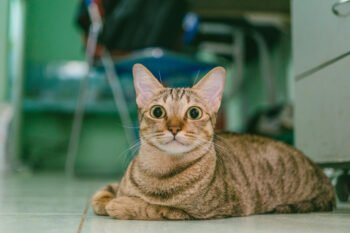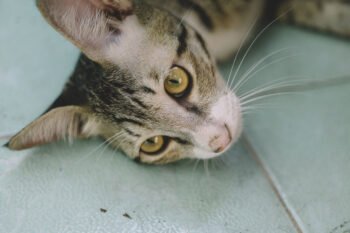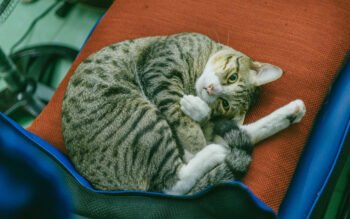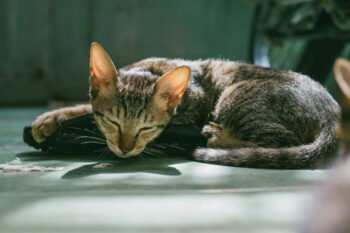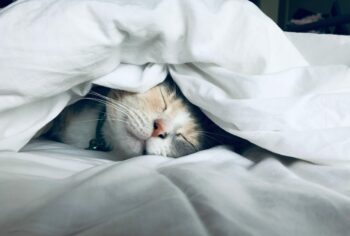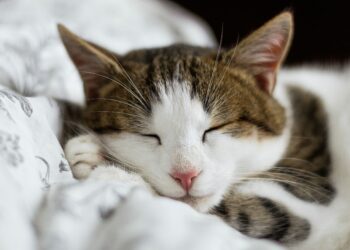Medical researchers have discovered a miracle cure that can reduce stress, lower blood pressure and improve mental well-being — no pills required. The cure is your cat, according to a recent conference held by the University of Missouri College of Veterinary Medicine Research Center for Human-Animal Interaction.
“Research in this field is providing new evidence on the positive impact pets have in our lives,” explains Rebecca Johnson, Ph.D., an associate professor at the MU Sinclair School of Nursing who helped organize the event.
Direct Health Benefits of Cat Ownership
It’s a visual given that comforting attention benefits your cat. Studies show that with human companionship, pets produce reduced amounts of the stress hormone cortisol. The good feelings appear to be mutual.
Dr. Karen Allen, a research scientist at the University of Buffalo, studied the blood pressure of 24 male and 24 female stockbrokers in New York City. All were non-smokers easing their hypertension with medication. During the study, some were instructed to adopt a dog or cat.
Those who acquired pets had more stable blood pressure and heart rates than those without pets. In fact, the pets seemed to do more good than the prescribed medicine. “When we told the group that didn’t have pets about the findings, many went out and got them,” says Allen. “This study shows that if you have high blood pressure, a pet is very good for you when you’re under stress.”
Cats Improve Psychological Health
Allen conducted yet another study on stress and pet ownership. This time, 240 married couples participated. The couples performed stress-inducing tasks in the presence of friends, spouses and pets. A machine monitoring stress levels showed that when individuals had their dog or cat around them, they experienced less stress.
“The findings demonstrate that pets can buffer reactivity to acute stress as well as diminish perceptions of stress,” says Allen. “Social support can indeed cross species.”
A Forever Friend
People of all ages can benefit from cat ownership, but two groups appear to show the most dramatic improvements: students and seniors. Perhaps during these life stages, many undergo changes that make feel more vulnerable and alone.
“We might not think of college students as being lonely, but a lot of freshmen and sophomores are in an early transition from living at home to living in dorms,” says Dr. Sara Staats, professor emeritus of psychology from Ohio State’s Newark Campus, who conducted a study on students and pets. “A lot of young adults choose to have an animal companion to help get them through these difficult and stressful situations, and many more say that without their pet, they would feel lonely.”
A University of Warwick study on British senior citizens came to similar conclusions. Seniors who must part with their pets upon entering residential care were found to often suffer from loneliness, depression and other forms of psychological distress. Those with pets fared much better.
Cats Help When No One Else Can
Dr. June McNicholas, who co-authored the U.K. study, proposes that cats and other pets may enhance our social interactions with other people while providing their own emotional support and companionship. While it’s frequently argued that animal lovers should not regard pets as a replacement for people, McNicholas and her colleagues astutely point out that “the fact that pets are not human confers certain advantages: The relationships are less subject to provider burnout or to fluctuations, and they do not impose a strain or cause concern about continuing stability.”
Another intriguing theory, formulated by Dr. Howard Frumkin, an internist and the director of the National Center for Environmental Health, is that we may be hardwired with a preference for animals and natural settings. Frumkin found evidence that viewing landscapes and having contact with animals, plants and the wilderness improves our mental well-being. In the future, psychologists may be justified in advising, “Pet two cats and call me in the morning.”

